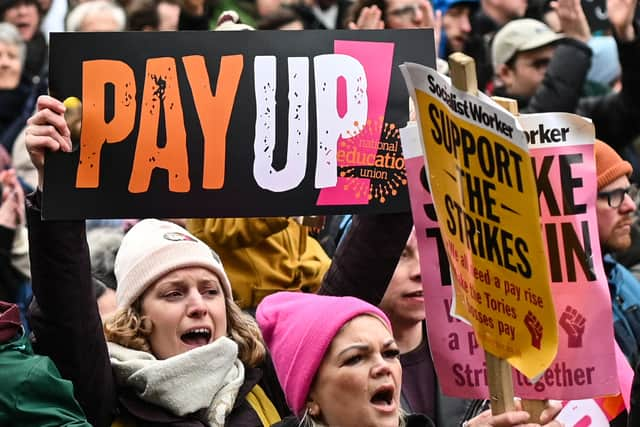Teachers’ strikes: Fresh round of industrial action announced for two days in July - what you need to know
and live on Freeview channel 276
Teachers in England are set to stage a fresh round of strikes in a long-running dispute over pay continues. Members of the National Education Union (NEU) will strike on Wednesday, July 5, and Friday, July 7, disrupting schools during the current term.
The NEU is re-balloting its members to see if they want to continue taking industrial action for the rest of 2023. Meanwhile, the other major education unions including the ASCL, NAHT and NASUWT are also balloting their members for strikes.
Advertisement
Hide AdAdvertisement
Hide AdNEU members have already engaged in five national and three regional strike days since February. The most recent industrial action on May 2 saw fewer than half of schools (45.3 per cent) remain fully open to pupils.
Education Secretary Gillian Keegan has previously said strike action was “extremely disappointing” while The Department for Education said further strike action would cause “real damage” to pupil learning.
But Dr Mary Bousted and Kevin Courtney, the NEU’s joint general secretaries, said Ms Keegan had “turned her back” on teachers in England, saying their calls have time and again “fallen on stony ground”.
They added that it was “within [Ms Keegan’s] power to halt these strikes”.
Advertisement
Hide AdAdvertisement
Hide AdWhy are teachers going on strike?
Teachers in England are striking over pay and funding disputes. Most state school teachers in England had a 5 per cent pay rise for the year 2022-23.


The government also offered a £1,000 one-off cash payment but this was lost when pay talks failed. Unions are pushing for a higher offer to match inflation, and for any pay rise to be funded by extra money from the government - rather than from schools’ existing budgets.
Instead, the government has offered a 4.3 per cent pay rise for most teachers for 2023-24 with starting salaries reaching £30,000. The Department for Education described this as a “fair and reasonable offer” and said that schools over the next two years schools would receive an extra £2.3bn.
But all four unions rejected the government’s offer, saying most schools would have to make cuts elsewhere to afford it, which stalled discussions. The unions are calling on the government to publish the recommendations of the independent pay review body, which advises what pay rise teachers should be offered in 2023-24.
Comment Guidelines
National World encourages reader discussion on our stories. User feedback, insights and back-and-forth exchanges add a rich layer of context to reporting. Please review our Community Guidelines before commenting.
